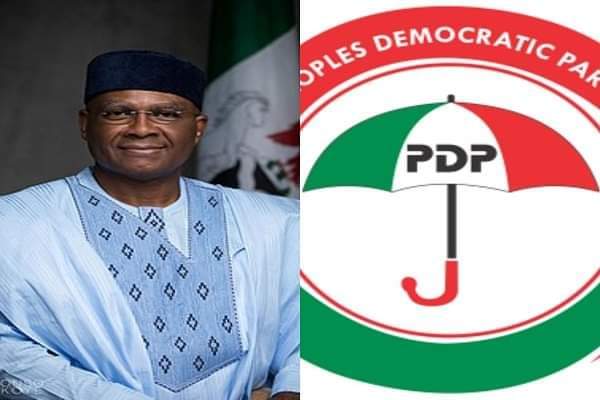Food that can help with your blood sugar, during Ramadan
February 20, 2026PAG Felicitates Muslims on Commencement of Ramadan Fast
February 18, 2026Nnamani’s expulsion from PDP nullified
Nnamani’s expulsion from PDP nullified

The expulsion of Chimaroke Nnamani, former Governor of Enugu State, from the Peoples Democratic Party (PDP) on grounds of alleged anti-party activities has been nullified by a Federal High Court in Abuja.
In a judgment delivered by Justice James Omotosho, it was ruled that Nnamani was not accorded fair hearing in accordance with the PDP’s constitution.
Justice Omotosho pointed out that, as per Article 57 of the PDP’s Constitution, only the national executive council (NEC) possesses the authority to convene a disciplinary committee, as opposed to the national working committee (NWC) which made the decision.
The judge emphasized that “The party’s constitution stipulates that the NEC is vested with the power to take disciplinary action against erring members who hold positions such as governor, deputy governor, or serving member of the National Assembly.”
Nnamani, who served as the representative for Enugu East Senatorial District in the 9th Senate, lost his re-election bid in the February 25th election to Kelvin Chukwu, a candidate from the Labour Party.
The PDP NWC, during its 566th meeting, expelled the former senator on February 10th for allegations of engaging in anti-party activities.
Prior to the expulsion, he had been suspended on January 20th.
Nnamani was accused of campaigning for Sen. Bola Tinubu, the All Progressives Congress (APC) presidential candidate, against the PDP’s presidential candidate, Atiku Abubakar.
Tinubu was declared the winner of the presidential election on February 25th by the Independent National Electoral Commission (INEC) and was inaugurated as Nigeria’s president on May 29th.
In response, Nnamani filed a suit marked FHC/ABJ/CS/163/23 on February 6th, suing the INEC, PDP national chairman, and the NWC as the first to third respondents, alleging a breach of his fundamental right to fair hearing.
In his originating summons, he asked the court to determine whether he could be suspended without being granted the constitutional right to fair hearing. He argued that he had not been notified of any complaint against him or given the opportunity for fair hearing.
The respondents countered with a counter affidavit and preliminary objection, seeking the dismissal of the suit.
They argued that Nnamani had campaigned for another political party while still being a member of the PDP.
They maintained that the party had the power to suspend him based on his involvement in anti-party activities.
They argued that “the issues at hand pertained to the party’s internal affairs, and thus, the court lacked jurisdiction to intervene.”
Justice Omotosho acknowledged that while the Supreme Court has established that matters of party membership fall within the jurisdiction of the party and are non-justiciable, Section 46(2) of the 1999 constitution empowers the court to hear cases involving alleged breaches of individual rights.
He cited previous cases to support his decision.
The judge clarified that the court would not meddle in the internal affairs of a party but would restrict itself to determining whether the plaintiff’s fundamental rights had been violated.
He acknowledged that although these rights are not absolute, they are enshrined in Chapter 4 of the 1999 Constitution of Nigeria, and the African Charter on Peoples Rights also provides for fundamental rights.
The judge agreed that a member of a political party must adhere to its rules and regulations after willingly subjecting themselves to them. However, he emphasized that the court would only intervene if the party had violated its own rules and regulations.
The observer noted that the provisions in Articles 4 and 5 of the PDP (People’s Democratic Party) outlined the fair hearing rights granted to members who have erred.
He argued that fair hearing entails offering equal opportunities to all parties involved, and once fair hearing has been conducted, a party cannot lodge a complaint.
However, the plaintiff’s complaint was centered around not receiving fair hearing, as stated in Article 57 of the party’s constitution.
He emphasized that specific provisions take precedence over general provisions in accordance with the law.
The court was presented with the fact that during the NWC’s (National Working Committee) 566th meeting, all allegations against Mr. Nnamani were considered, leading to his one-month suspension.
The judge also observed that it was the NWC who expelled him through a press release on February 10.
Mr. Omotosho strongly believed that this expulsion constituted a grave violation of the party’s constitution, rendering all subsequent actions null and void.
The court was convinced that the plaintiff successfully proved his case against the respondents.
Consequently, Mr. Omotosho issued an order to nullify the decision made by the PDP NWC on February 10, which expelled the former lawmaker.
(NAN)








